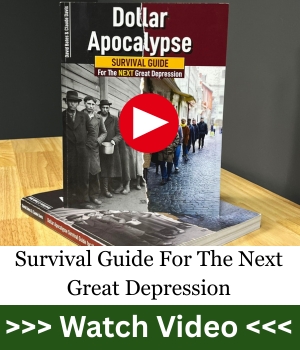The “War on Drugs” is a great example of America’s slow descent into a police state.
Only 120 years ago, you could actually buy cocaine – and syringes – out of a Sears catalog. Cannabis (marijuana) was widely used as a painkiller and to treat seizures. You could buy morphine over the counter at any pharmacy.
Admittedly, some people became addicted to these substances. By 1900, around 3% of Americans were addicted to drugs – mainly morphine.
The War on Drugs actually began in 1914, when Congress restricted the marketing of opiates and coca/cocaine products. Advocates for the new law spoke of “drug-crazed, sex-mad Negroes” murdering whites and “Chinamen” seducing white women with opium. Congress later imposed similar restrictions on marijuana.
As time passed, the “war” on at least some drugs escalated. Federal penalties for drug possession were stiffened in the 1950s, and in 1970, Congress enacted a law that gave federal prosecutors the right to confiscate the property of anyone convicted of drug trafficking in a process called criminal forfeiture. Eight years later, Congress gave prosecutors the ability to seize the property of anyone merely suspected of being a drug trafficker through civil forfeiture proceedings.
But it still wasn’t enough. President Ronald Reagan pushed for a tough new money laundering law in the 1980s to fight – you guessed it – the War on Drugs. Naturally, it came with harsh civil and criminal forfeiture remedies.
States followed the federal example with their own anti-drug laws. Today, nearly 17% of the inmates in America’s state prisons are there because of the War on Drugs, and drug offenders represent a whopping 55% of inmates in federal prisons.
But merely locking up drug offenders still wasn’t enough. The escalating War on Drugs required them to be exposed. In 1986, President Reagan signed an executive order mandating random drug testing of some federal employees. Many private companies followed this example. Today, it’s almost impossible to find a job with a major company that doesn’t require a drug test.
Most tests don’t test for traces of illegal drugs themselves, but for metabolites, the products of their metabolism.
And it wasn’t enough to simply test individuals in the workplace. States quickly expanded their laws prohibiting driving under the influence of alcohol to driving under the influence of drugs.
My adopted state of Arizona followed the trend. In 1990, it enacted a “zero tolerance” drugged driving law. Drivers testing positive for any amount of an illegal drug or its metabolite were irrefutably presumed to have been under its influence.
 It is possible to test for the psychoactive ingredient or psychoactive metabolite in marijuana. However, these substances degrade to very low concentrations less than an hour after ingestion. So most states, including Arizona, test for marijuana’s non-psychoactive metabolite (which can remain in a person’s body for as long as 30 days). These states don’t need to prove drivers were under the influence of the drug while driving. They don’t even need to show drivers had any trace of an impairing substance in their bodies.
It is possible to test for the psychoactive ingredient or psychoactive metabolite in marijuana. However, these substances degrade to very low concentrations less than an hour after ingestion. So most states, including Arizona, test for marijuana’s non-psychoactive metabolite (which can remain in a person’s body for as long as 30 days). These states don’t need to prove drivers were under the influence of the drug while driving. They don’t even need to show drivers had any trace of an impairing substance in their bodies.
In 2010, Arizona police pulled over a vehicle driven by Hrach Shilgevorkyan. He submitted to a blood test that revealed the presence of marijuana’s non-impairing metabolite. He was charged with drugged driving.
Shilgevorkyan’s lawyer tried to get the charge dismissed because the test hadn’t revealed any substance that could actually impair driving. After a series of appeals, the case wound up before the Arizona Supreme Court in 2013.
The state argued that its zero-tolerance law should be upheld even if a non-impairing metabolite could be detected five years or more after ingestion. It even claimed that the law didn’t require that the metabolite actually be the product of an illegal substance’s breakdown. For example, serotonin, a substance our bodies produce naturally, and the illegal substance bufotenine both share a common non-psychoactive metabolite.
The Arizona Supreme Court didn’t buy the state’s arguments. It concluded that the law enacted in 1990 wasn’t intended to prosecute individuals with non-impairing metabolites of illegal substances. In addition, it observed that the state’s interpretation criminalized otherwise legal conduct. (In 2010, Arizona voters legalized marijuana for medicinal purposes.)
This is a small but important victory over the growth of the police state. It has the commonsense result that drivers in Arizona can’t be prosecuted for drugged driving when they’re entirely sober.
Of course, Arizona legislators could follow the lead of at least one other state (Delaware) and criminalize the presence of even non-impairing metabolites in a driver’s blood.
In addition, the War on Drugs itself is alive and well. America’s federal, state, and local governments still spend billions of dollars annually to perpetuate it. Billions more are confiscated from actual or suspected drug dealers each year.
The results? After 100 years, and hundreds of billions of dollars spent on interdiction, prosecution, and incarceration, the percentage of Americans addicted to drugs is about the same as it was when the war began: around 3%.
In other words, if the entire apparatus of the War on Drugs were dismantled tomorrow, Americans would be no more likely to become drug addicted than they were before it began. We’d also have a lot more freedom. The right to self-ownership of our bodies, including what we put into them, is about as basic as freedom gets.
Of course, that’s not a likely scenario. On the other hand, what happened in Arizona represents a small victory for sanity in this war.
Guest Post from Mark Nestmann





















In order not to be deformed ,be informed. With the CBD and the THC compounds in Marijuana, marijuana has already shown its healing strength. Cannabis is very effective for the treatment of Cancer,Glaucoma,Cachexi(wasting syndrome),Pain,Nausea,Seizures,Muscle spasms,Multiple sclerosis,etc. Interested in Medical Marijuana too for the above reason or others,
Are you looking for Good Stuff? Variety of Top Quality Medical Marijuana Strains, cannabis Oils and capsules available!! Overcome your lost of appetite, cure insomnia, pains, Anxiety, Disorders, Major Depression and MANY MORE. For your health prescriptions and medical purchases
An Alternative Way To Get Your Meds Discretely Without Any Hassles.
Legit supplier of Grade A++ Medical and Recreational Cannabis Strains for Patients and non patients. Do contact for supplies of Cannabis Oils, Cannabis Capsules/Pills and more.
We are available to assist with all of your Medical Cannabis/Marijuana healing needs. Feel free to contact us whenever you have a special request for a Medical Cannabis product;
Medicinal Cannabis Strains,
Rick Simpson Oil,
CBD Rich Oil,
THC Oils,
Vape Oils,
Cannabis Capsules/Pills,
Extracts & Concentrates,
Cannabis Seeds, and more–
Phone Number; +1 (678) 881-7363
Email Address; jersy.for@gmail.com